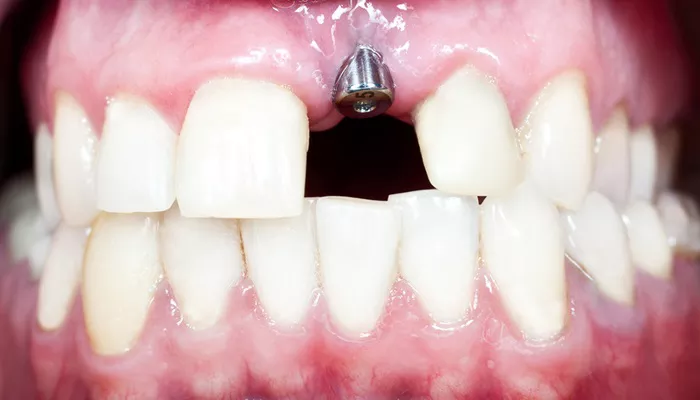Dental implants are a popular and effective solution for replacing missing teeth. They provide a strong foundation for artificial teeth and can significantly improve a person’s quality of life. However, many patients wonder how long it takes to install dental implants after the initial procedure. This article will explore the timeline for dental implants, the factors that influence this timeline, and what patients can expect during the process.
Understanding Dental Implants
What Are Dental Implants?
Dental implants are titanium posts surgically placed into the jawbone. They act as artificial tooth roots, providing a secure base for replacement teeth, known as crowns. Implants are designed to look, feel, and function like natural teeth.
Why Are Dental Implants Needed?
Dental implants are used for several reasons:
To Replace Missing Teeth: They offer a permanent solution for missing teeth due to decay, injury, or other dental issues.
To Restore Functionality: Implants help restore chewing and speaking abilities.
To Improve Aesthetics: They provide a natural appearance, enhancing the smile and overall facial structure.
The Dental Implant Process
The dental implant process typically involves several stages, each with its own timeline.
1. Initial Consultation
The first step is an initial consultation with a dentist or oral surgeon. During this appointment, the dentist will evaluate the patient’s oral health, take X-rays, and discuss the treatment plan. This consultation usually lasts about an hour.
2. Tooth Extraction (if necessary)
If the patient has a damaged or decayed tooth that needs to be removed, this procedure will occur before placing the implant. The healing time after tooth extraction can vary but typically takes 1 to 2 weeks.
3. Bone Grafting (if necessary)
If the jawbone is insufficient to support an implant, a bone graft may be necessary. Bone grafting involves adding bone material to the jaw to create a stable foundation for the implant. The healing time for a bone graft can range from 3 to 6 months.
4. Implant Placement
Once the jawbone is ready, the dental implant can be placed. This procedure involves:
Surgical Placement: The dentist makes an incision in the gum to expose the bone and places the titanium post into the jaw.
Healing Time: After the implant is placed, the bone needs time to integrate with the implant in a process called osseointegration. This usually takes 3 to 6 months.
5. Abutment Placement
After osseointegration is complete, a small connector called an abutment is placed on top of the implant. This procedure is usually performed under local anesthesia and takes about 30 minutes. After abutment placement, there is typically a healing period of 2 weeks before the final crown can be placed.
6. Crown Placement
The final step is placing the crown, which is the visible part of the tooth. This process involves taking impressions of the mouth to create a custom crown that matches the patient’s natural teeth. The crown placement itself takes about 1 hour.
How Long After Dental Implants Can They Be Installed?
Overall Timeline
The total time from the initial consultation to the placement of the final crown can vary significantly based on individual circumstances. Here’s a general timeline:
- Initial Consultation: 1 day
- Tooth Extraction: 1 to 2 weeks (if necessary)
- Bone Grafting: 3 to 6 months (if necessary)
- Implant Placement: 1 day
- Osseointegration: 3 to 6 months
- Abutment Placement: 1 day
- Crown Placement: 1 day
In total, the entire process can take anywhere from 4 to 12 months, depending on individual healing times and whether additional procedures, like bone grafting, are required.
Factors Influencing the Timeline
Several factors can influence how long it takes to install dental implants:
1. Bone Quality and Quantity
The quality and quantity of jawbone play a crucial role in the timeline. Patients with sufficient bone may have a shorter healing time, while those requiring bone grafting will need additional time for healing.
2. Individual Healing Response
Every patient heals at a different rate. Factors such as age, overall health, and lifestyle choices (like smoking) can affect healing times. Younger, healthier patients often experience quicker healing.
3. Complexity of the Case
The complexity of the dental situation can also influence the timeline. Patients with multiple missing teeth or those needing additional procedures may require a longer treatment time.
4. Infection or Complications
If complications arise, such as infection at the implant site, this can delay the process. Maintaining good oral hygiene and following post-operative care instructions are essential for preventing complications.
What to Expect During the Healing Process
After Implant Placement
After the dental implant is placed, patients can expect some swelling and discomfort. This is normal and can usually be managed with over-the-counter pain medication. Here are some tips for a smooth recovery:
Follow Post-Operative Instructions: Adhere to the dentist’s instructions regarding diet, activity level, and oral care.
Eat Soft Foods: Stick to a soft diet for the first few days to avoid putting pressure on the implant site.
Maintain Oral Hygiene: Keep the mouth clean to prevent infection. Gently brush and rinse as directed by your dentist.
Monitoring Progress
Regular follow-up appointments are essential to monitor the healing process. The dentist will check for signs of osseointegration and ensure that the implant is stable. If any issues arise, they can be addressed promptly.
Conclusion
The timeline for installing dental implants can vary widely based on several factors, including the need for additional procedures, individual healing responses, and the complexity of the case. Generally, the entire process can take anywhere from 4 to 12 months.
Understanding the timeline and what to expect can help patients prepare for their dental implant journey. If you are considering dental implants, consult with a qualified dental professional to discuss your options and create a personalized treatment plan. With proper care and attention, dental implants can provide a long-lasting solution for missing teeth, restoring both function and confidence.
Related topics:

